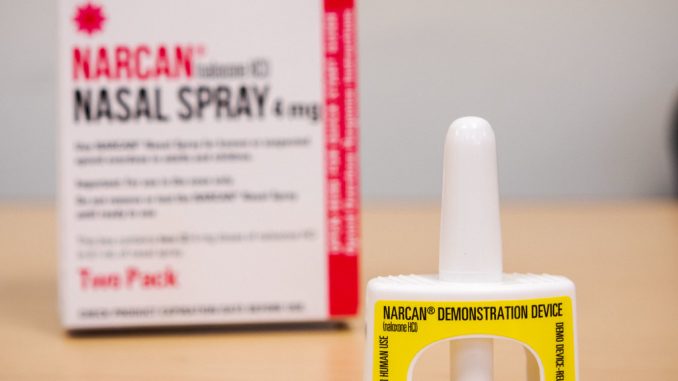
Ulster County Executive Pat Ryan and Ulster County Sheriff Juan Figueroa have announced a three-part strategy to reduce the county’s opioid-related fatality rate by 50% in the next two years.
As a part of Ryan’s top five initiatives for his term, this anti-opioid strategy, “put together with a task force of over 50 organizations, outlines recommendations in three areas — ‘Reducing Supply,’ ‘Reducing Demand and Improving Treatment,’ and ‘Recovery Services,’” according to a press release sent by Ryan on July 11.
Ulster County has one of the highest opioid-related overdose rates in New York State, with the average in 2016 being in the fourth quartile at over 22 deaths per 100,000 people. This is the highest quartile in New York State, and four out of six of Ulster County’s neighboring counties are also in this quartile, according to the New York State Department of Health (NYSDOH).
According to the NYSDOH, there were 56 opioid overdoses in Ulster County in 2018, an increase from 44 opioid overdoses in 2017.
“Opioid use disorder is a recurring and chronic brain disease and needs to be regarded and treated as such,” said Commissioner of Health Dr. Carol Smith in Ryan’s press release. “While our goal of reducing overdoses and fatalities by 50% in two years is ambitious, I’m confident that through focused improvements and the power of collaboration we can succeed.”
One aspect of assisting in the recovery services for opioid addiction is the introduction of “medically assisted treatment” (MAT) to the Ulster County jail.
“MAT, including opioid treatment programs, combines behavioral therapy and medications to treat substance use disorders,” according to the Substance Abuse and Mental Health Services Administration. “The SUPPORT [Substance Use Disorder Prevention that Promotes Opioid Recovery and Treatment for Patients and Communities] Act extends the privilege of prescribing buprenorphine in office-based settings to Clinical Nurse Specialists, Certified Registered Nurse Anesthetists and Certified Nurse Midwives until Oct. 1, 2023.”
In order to achieve the ambitious goal of decreasing opioid-related fatalities, Ulster County has received a $2.5 million CHASE grant from Columbia University that will be used over the next three years, as well as an award of $216,000 from the NYSDOH that will be given over three years. These grants aim to aid in treating and preventing opioid addiction.
“One of my ‘Big Five’ priorities is to ramp up our efforts to tackle the opioid epidemic because we can not allow this crisis to continue to rip apart our community and our families,” Ryan said in the press release. “We still have a long road ahead of us, but the actions outlined by the Opioid Prevention Task Force along with the nearly $3 million in grant funding will help us turn the tide and save lives.”
Ulster County Sheriff Juan Figueroa is ready for this plan to take off.
“People are tired of talk, they want action from their government and law enforcement,” Figueroa said in Ryan’s press release. “We are working to set up an emergency hotline to assist those who have overdosed and help them get treatment, as well as work with the impacted family. This is one of my priorities as Sheriff, and I am thankful to have so many partners in Ulster County to combat this crisis.”
According to Jackie Cirello from New Paltz Substance Awareness for Everyone, “New York State Office of Alcoholism and Substance Abuse Services (OASAS) highlighted Ulster County as an opioid state targeted response county allowing the county to provide services including Narcan trainings. SUNY New Paltz offers free Narcan training for students, faculty, staff and community members.”
The next free Narcan training at SUNY New Paltz will take place on Nov. 21 from 6 to 8 p.m. in the Student Union Building in room 418. An RSVP is required by contacting Jackie Cirello at 845-257-3028 or cirelloj@newpaltz.edu.

